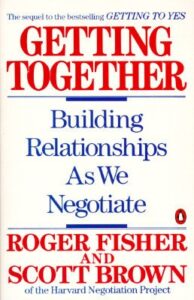Happily Ever After: Building Walls and Closing Cracks
Many of us want “happily ever after” relationships. How can we cultivate relationships that stand the test of time? Many marriage vows are based on commitment to the marriage that includes phrases such as “til death do us part,” and “in sickness and health.” Before marriage we often assume that we all know what “commitment” means. Oftentimes, however many people differ in their opinions about what it means to be “committed” in a relationship. Unless we talk openly about our assumptions, as well as the possible pitfalls that hinder a committed relationship, we can set ourselves up for disappointment.
First, it is important in any relationship to begin by building a healthy foundation that includes protective walls around the relationship. Actively work to build trust, emotional connection, and intimacy with one another. A healthy marriage does not come naturally. It takes investment. A number of resources are available like books, videos, retreats, classes, couple’s counseling, and marriage seminars that offer great tools to cultivate love and also increase awareness of behaviors that damage trust and intimacy.
 Second, talk openly about how to protect the walls around the relationship. What are some “red flags” that can alert each partner that the marriage is in need of attention? Talk about how to approach one another when feeling disconnected or taken for granted. If we receive emotional support from someone outside the marriage other than our spouse, cracks begin to form in our walls and weaken the relationship. If it is difficult to approach one another, seek professional help to work through challenges or obstacles together.
Second, talk openly about how to protect the walls around the relationship. What are some “red flags” that can alert each partner that the marriage is in need of attention? Talk about how to approach one another when feeling disconnected or taken for granted. If we receive emotional support from someone outside the marriage other than our spouse, cracks begin to form in our walls and weaken the relationship. If it is difficult to approach one another, seek professional help to work through challenges or obstacles together.
Third, talk openly about the potential of temptation outside the marriage. Just because we are committed does not mean that we will not find someone else attractive. This is perfectly normal. How can we protect our relationship when we find someone else attractive, or when someone makes advances on us? Shirley Glass, author of “Not Just Friends,” offers a brief list of suggestions to consider:
- Know that attraction is normal. But just because you feel it doesn’t mean you have to act on it. Being attracted to someone else doesn’t mean you’ve chosen the wrong person. One of the measures of true commitment is that you don’t allow yourself to be pulled away from your priorities by distractions.
- Don’t let yourself fantasize about what it would be like to be with that other person.
- Don’t flirt.
- Avoid risky situations. (Glass, 2004)
Above all, keep communication inside the walls of marriage. If outside support is needed, make it a rule to confide only in someone that puts the marriage first.
In her book, “Not Just Friends: Rebuilding Trust and Recovering Your Sanity After Infidelity,” Shirley Glass has several quizes that offer warning signs that a partner may be on the slippery slope to an affair. The book also offers great insights on how to build healthy walls around the relationship and close cracks or openings that appear.
Quiz: Is Your On-line Friendship Too Friendly?
What are the warning signs that you (or your partner) are on the slippery slope to an on-line affair? Take this quiz and see:
- Do you find yourself coming to bed later at night because you are chatting on-line?
- Do you ever exit a screen because you do not want a family member to see what you are reading or writing to a chat room member?
- Have you ever lied to your spouse about your personal Internet activities?
- Would you feel uncomfortable sharing your Internet correspondence with your spouse?
- Have you ever set up a separate e-mail account or credit cared to carry on personal correspondence with an individual on-line?
- Has your Internet correspondence had a negative effect on your work or household tasks?
- Have you ever lied in response to a question from your spouse about your e-mail correspondence?
- Have you ever exchanged photos of yourself with a secret e-mail correspondent?
- Since beginning a secret e-mail correspondence, have you ever experienced a loss or an unusual increase in sexual desire with your spouse?
- Have you made arrangements to talk secretly on the phone with your e-mail correspondent?
- Have you made arrangements to meet with your secret e-mail correspondent?
Scoring Key:
Two or more yes answers to questions 1,2,3,4 indicate a potential Internet romance developing. It is time to either share your on-line correspondence with your mate or break off the correspondence and begin to examine how to improve your marriage.
A yes answer to any of questions 5,6,7 indicates you are crossing a boundary from an Internet friendship to an Internet romance. Acknowledge this relationship for what it is about to become and take action to preserve and enhance your marriage.
A yes to questions 8 or 9 indicates you have begun a fantasy romantic relationship with your on-line correspondent. Even if it never moves to a physical stage, this relationship has great potential to damage or destroy your marriage.
A yes to questions 10 or 11 indicates that you have taken positive action toward initiating an extramarital affair. Consider the impact this will have on the marriage and your children and take steps to sort this out with a professional. (Glass, 2004)
A “happily ever after” relationship goes through a number of ups and downs. It takes investment, a willingness to be open, and a good amount of courage. Healthy walls take work and need to be maintained throughout the years. Fuller Life Family Therapy offers an abundance of marriage resources, pre-marital counseling, and couple’s counseling in the hopes that we can be a part of cultivating healthy relationships.
Glass, S. (2004). Not “Just Friends”: Rebuilding Trust and Recovering Your Sanity After Infidelity.










